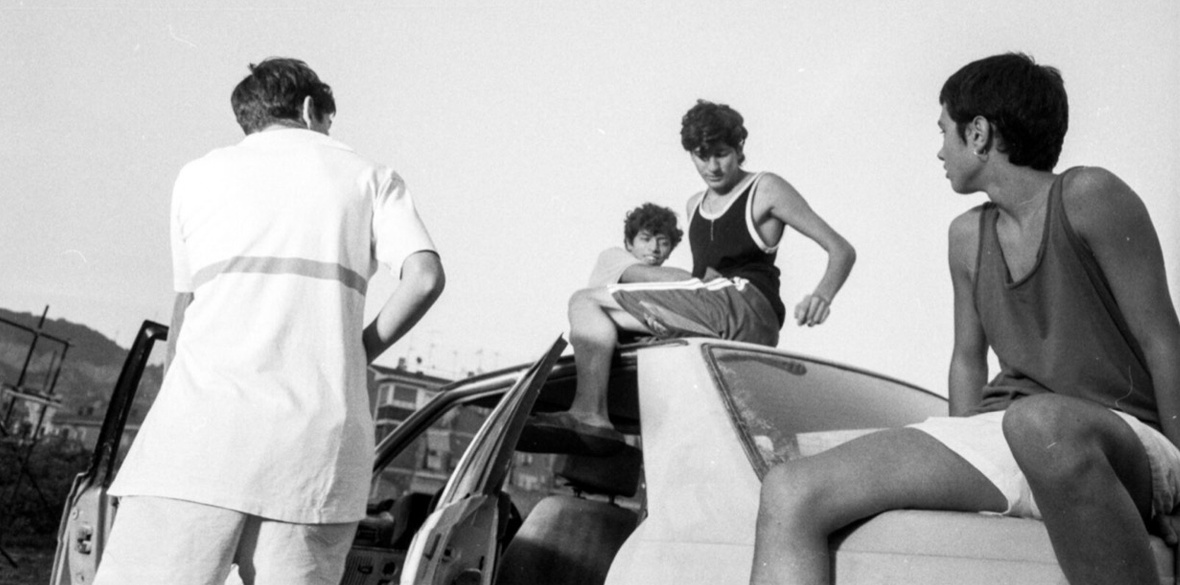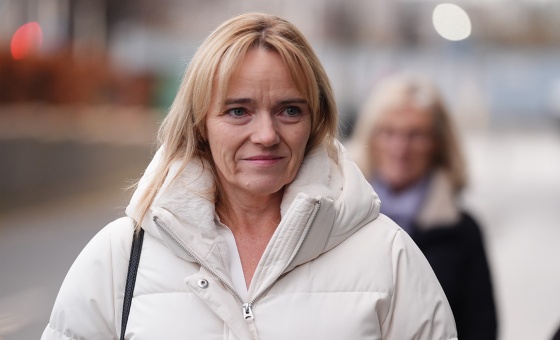This is the last article you can read this month
You can read more article this month
You can read more articles this month
Sorry your limit is up for this month
Reset on:
Please help support the Morning Star by subscribing here
BLACK NIGHTS Film Festival, also known as POFF, is one of the largest film festivals in northern Europe, showcasing the latest and most captivating works of world cinema to local audiences in Tallinn, Estonia.
The festival is a hub for remarkable cinematic discoveries, and the First Future category offers a unique prospective on cinema with a selection of 11 titles, mainly world premieres, each distinct in content and form.
Winner of the Best First Future, Steve Bache’s No Dogs Allowed, based on true events, explores the contemporary issue of social media’s impact on the younger generation and the internet’s latest trends: paedophile hunting.
Gabo, a 15-year-old, is dealing with an unsettling secret. Isolated and seeking someone to confide in, he finds solace in an online friend who lends a listening ear and empathy to him. However, Gabo soon discovers that his online friend is an older man, Dave, who has ulterior motives. When Dave faces charges of child molestation, Gabo is confronted with a crucial decision.
This film highlights the awful nature of Dave’s crimes while depicting a world dominated by smartphones and images, where young people fear an outside world that is actually safer than the one they encounter online.
Moreover, No Dogs Allowed raises questions about collective responsibility, portraying an unscrupulous media ecosystem dominated by a handful of billionaire owners. The message is clear: kids are not all right. Social media negatively affects the teenager’s mental health, and smartphones are harming a generation.
Another notable coming-of-age story at the festival was Edgardo Pistone’s Ciao Bambino, which follows a 17-year-old boy who, confronted with his father’s addiction to drugs and gambling, is torn between loyalty to his father and his love for a young prostitute. Set in the heart of Naples’s working class, it portrays a world of poverty, rich in humanity.
This highly emotional melodrama denounces injustice while capturing the protagonist’s courage and tenacity as he fights for freedom in a world where children must grow up quickly. Eduardo Pistone’s essential compassion and determination to create a realistic picture shine through.
Avoiding any sentimentality, the stylish black-and-white film offers an objective observation of the facts, with the director immersing the audience in his world. Naturalistic acting by mainly by non-professional actors, represents the core of this film, a brilliant debut, reminiscent of past directors like Rossellini, Fellini, and De Sica.
A diverse range of experiment makes Signe Birkova’s Lotus. Partly shot on an analogue camera from the 1920s, the Latvian director builds an experimental dreamlike fairy-tale, blending history and fantasy, with various film techniques, including 8mm, 16mm and 35mm.
Lotus follows Alice von Trotta, a silent film director, whose friend, the vampiric Madam Falstaff, has a hidden agenda: to use Alice’s artistic talents for a propaganda film. Alice embarks on an uphill battle in the film industry, striving to write a phenomenal screenplay and fighting against government censorship. This sophisticated metaphor for the corrupting effects of power is magically grotesque and filled with unforgettable images.
Chilean director Diego Figuera’s A Yard of Jackals explores corruption and power. Set in the winter of 1978, it follows the daily routine of model-maker Raul Peralta, disrupted by the mysterious arrival of new neighbours.
This tense exploration of the ethical decline left by the Pinochet dictatorship shows how its ferocity penetrates ordinary people’s lives. With great acting, the horrific sounds of torture, the thriller atmosphere, and the protagonist’s illness, the film achieves a total absorption of content into form.
The Serbian David Jovanovic’s debut Sun Never Again astonishes with the story of a family in a rural village. Dude, a happy boy living with his parents, seems to be in an idyllic place, but the nearby mine threatens their future.
Inspired by real events, the film is set in a mining village in the Republic of Srpska where the expanding iron mine poisons the land, air and water, causing asthma and pulmonary fibrosis. The habitants have no choice but to sell their land to big corporations.
The setting of this movie is a surreal landscape, a rural area divided into two worlds, with farmhouses on one side and a coalmine with daily explosions and bulldozers reshaping the surface on the other, creating an apocalyptic landscape devoid of vegetation.
This powerful film depicts the triumph of the powerful over the weak, moving through psychological truth and ethnographic accuracy. The father of our young protagonist has to protect his family and his endurance and spiritual struggles are poetically and mesmerisingly conveyed, capturing the audience throughout. Sun Never Again is a remarkable graduation film, crowd-funded and shot on a small budget.








